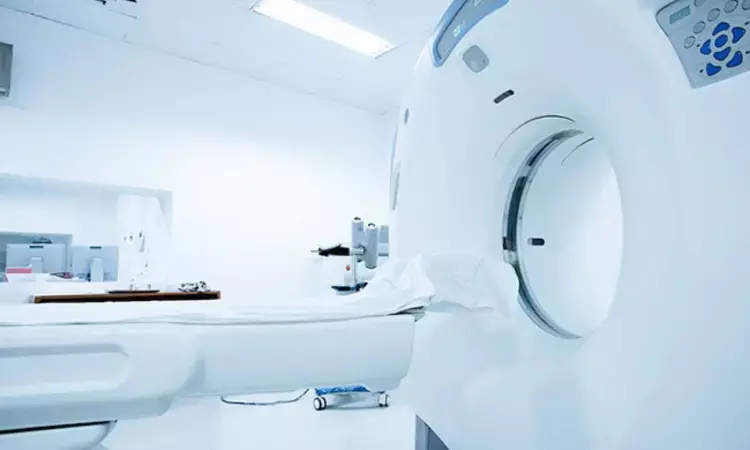- Home
- Medical news & Guidelines
- Anesthesiology
- Cardiology and CTVS
- Critical Care
- Dentistry
- Dermatology
- Diabetes and Endocrinology
- ENT
- Gastroenterology
- Medicine
- Nephrology
- Neurology
- Obstretics-Gynaecology
- Oncology
- Ophthalmology
- Orthopaedics
- Pediatrics-Neonatology
- Psychiatry
- Pulmonology
- Radiology
- Surgery
- Urology
- Laboratory Medicine
- Diet
- Nursing
- Paramedical
- Physiotherapy
- Health news
- Fact Check
- Bone Health Fact Check
- Brain Health Fact Check
- Cancer Related Fact Check
- Child Care Fact Check
- Dental and oral health fact check
- Diabetes and metabolic health fact check
- Diet and Nutrition Fact Check
- Eye and ENT Care Fact Check
- Fitness fact check
- Gut health fact check
- Heart health fact check
- Kidney health fact check
- Medical education fact check
- Men's health fact check
- Respiratory fact check
- Skin and hair care fact check
- Vaccine and Immunization fact check
- Women's health fact check
- AYUSH
- State News
- Andaman and Nicobar Islands
- Andhra Pradesh
- Arunachal Pradesh
- Assam
- Bihar
- Chandigarh
- Chattisgarh
- Dadra and Nagar Haveli
- Daman and Diu
- Delhi
- Goa
- Gujarat
- Haryana
- Himachal Pradesh
- Jammu & Kashmir
- Jharkhand
- Karnataka
- Kerala
- Ladakh
- Lakshadweep
- Madhya Pradesh
- Maharashtra
- Manipur
- Meghalaya
- Mizoram
- Nagaland
- Odisha
- Puducherry
- Punjab
- Rajasthan
- Sikkim
- Tamil Nadu
- Telangana
- Tripura
- Uttar Pradesh
- Uttrakhand
- West Bengal
- Medical Education
- Industry
Does urine alkalinization prevent contrast-induced acute kidney injury?

Italy: Urinary pH before administration of contrast medium is inversely correlated with the incidence of contrast-induced acute kidney injury (CI-AKI), and for achieving urinary alkalinization, bicarbonate is superior to hydration alone, researchers state in a study published in EuroIntervention.
The findings led researchers to conclude that urinary pH is not a mediator but a marker of CI-AKI as bicarbonate did not reduce the incidence of CI-AKI.
Contrast-induced acute kidney injury is useful for prognosis in invasive cardiological and radiological procedures. The administration of sodium bicarbonate has controversial effects. There is a hypothesis that bicarbonate is ineffective when it cannot achieve adequate urine alkalinization. Considering this, Marco Lombardi, Institute of Cardiology, G. d'Annunzio University, Chieti, Italy, and colleagues tested the hypothesis that alkaline urine status with oral or intravenous (i.v.) bicarbonate on top of hydration alone prevents CI-AKI.
For this purpose, the researchers compared the parameters in a prospective, randomized, parallel-group, open-label trial: 1) i.v. Bicarbonate (n=82); 2) saline hydration alone (n=81); and oral bicarbonate (n=78) in chronic kidney disease patients scheduled for the intra-arterial administration of contrast medium. The study's primary endpoint was the incidence of CI-AKI in accordance with the alkaline urine status achieved immediately before angiography. Secondary endpoints include the incidence of CI-AKI in the three groups and the mean change of urine pH up to the time of angiography.
The study led to the following findings:
- The incidence of CI-AKI was not remarkably different in the three treatment arms (20% in the hydration group, 21% in the oral bicarbonate group, and 22% in the i.v. bicarbonate group).
- Patients achieving a pH >6 before angiography (n=145) had a significantly lower incidence of CI-AKI compared with the others (n=96; odds ratio [OR] 0.48 primary study hypothesis).
- The proportion of patients achieving a pH >6 was higher in the i.v. and oral bicarbonate groups compared with hydration alone.
"Urinary pH before contrast medium administration is an inverse correlate of CI-AKI incidence, and bicarbonate is superior to hydration alone in achieving urinary alkalinization," the researchers wrote.
Since bicarbonate did not reduce the risk of CI-AKI, the researchers conclude that urinary pH is a marker and not a mediator of CI-AKI.
Reference:
"The study titled "Urine alkalinization to prevent contrast-induced acute kidney injury: the prospective, randomized, controlled, open-label TEATE trial" was published in the journal EuroIntervention.
DOI: 10.4244/EIJ-D-22-00010
Dr Kamal Kant Kohli-MBBS, DTCD- a chest specialist with more than 30 years of practice and a flair for writing clinical articles, Dr Kamal Kant Kohli joined Medical Dialogues as a Chief Editor of Medical News. Besides writing articles, as an editor, he proofreads and verifies all the medical content published on Medical Dialogues including those coming from journals, studies,medical conferences,guidelines etc. Email: drkohli@medicaldialogues.in. Contact no. 011-43720751


